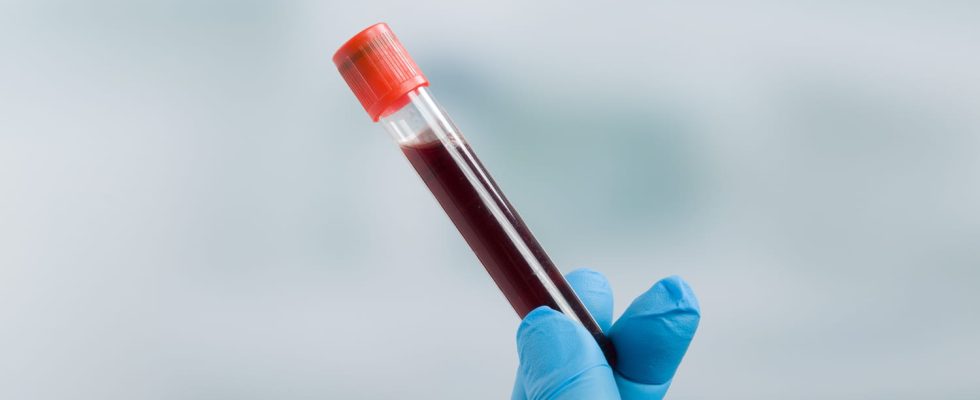A biological blood test is a blood test that measures different elements in the blood. This examination is prescribed by a doctor to assess the general state of health of a patient, diagnose a disease or monitor the effectiveness of a treatment. More details with Dr Anne-Sophie Ong, medical biologist.
What is a biological blood test?
The biological assessment designates a set ofmedical analyzes performed to explore the functioning of an organ or part of the body if the doctor suspects an infection or disease, in order to detect it. “This balance sheet generally includes several analyses, such as complete blood count (NFS), kidney function parameters (creatinine, urea, clearance), liver function parameters (liver enzymes, bilirubin)thyroid function parameters (thyroid hormones) and blood glucose testing (blood glucose level), cholesterol and triglycerides (fats present in the blood)“, details Dr. Anne-Sophie Ong, medical biologist. “It can be supplemented by specific or in-depth examinations”. The biological blood test is carried out in drawing a small amount of blood from a vein of the patient, most frequently at the elbow crease. “The results are usually available within a day for the most common tests and are interpreted by a doctor who will do a complete analysis to determine if any abnormalities are present and if treatment is necessary.“. It is important to specify that not all diseases can be detected on a blood test.
What are the examinations of a biological assessment?
The examinations included in a biological assessment can vary according to the specific needs of the patient and the recommendations of the doctor. However, some of the most commonly ordered tests are:
- There NFS (full blood count): “it quantifies the different types of blood cells, including red blood cells, white blood cells and platelets“, continues the biologist.
- THE CRP test : “this is the measurement of the level of C-reactive protein in the blood to assess the inflammatory state of the patient“.
- THE urea, creatinine assays and creatinine clearance to check kidney function
- THE liver enzyme assay to assess liver function
- THE thyroid hormone test to check thyroid function.
- THE blood glucose test : “it measures the level of glucose in the blood to assess the risk of diabetes”.
- Exploration of a lipid abnormality : “this is the measurement of fats present in the blood including triglycerides, total cholesterol, LDL-cholesterol (the “bad” cholesterol) and HDL-cholesterol (the “good” cholesterol) to assess the risk of cardiovascular disease “.
- THE blood clotting tests which measure blood clotting time to assess the risk of bleeding or thrombosis.
When to do a biological assessment? What interest ?
A biological assessment can be prescribed by a doctor for different reasons. “First of all, it allowsassess general health of a patient, resumes our interlocutor. A biological check-up can detect abnormalities and imbalances in the body that could indicate a disease or health disorder. It could be the case of a routine check-up, which is a preventive check-up“. The biological assessment is also intended to diagnose a disease. “Laboratory results can help confirm or rule out a diagnosis, identify the cause of a disease, or monitor its progress“. It also presents a interest in the effectiveness of a treatment : “a biological assessment can check if a medical treatment is working properly, and if the body tolerates it well, in order to determine if adjustments are necessary“. Moreover, “certain analyzes of the biological assessment, such as the dosages of cholesterol and glycaemia, make it possible to assess the risk factors for cardiovascular disease and diabetes“. Finally, “a biological assessment is prescribed on a regular basis in people with chronic diseases requiring surveillancesuch as diabetes”.
Thanks to Dr Anne-Sophie Ong, medical biologist at the Unibio laboratory in Tournon-sur-Rhône (07) and member of the Les Biologistes Indépendants network.
